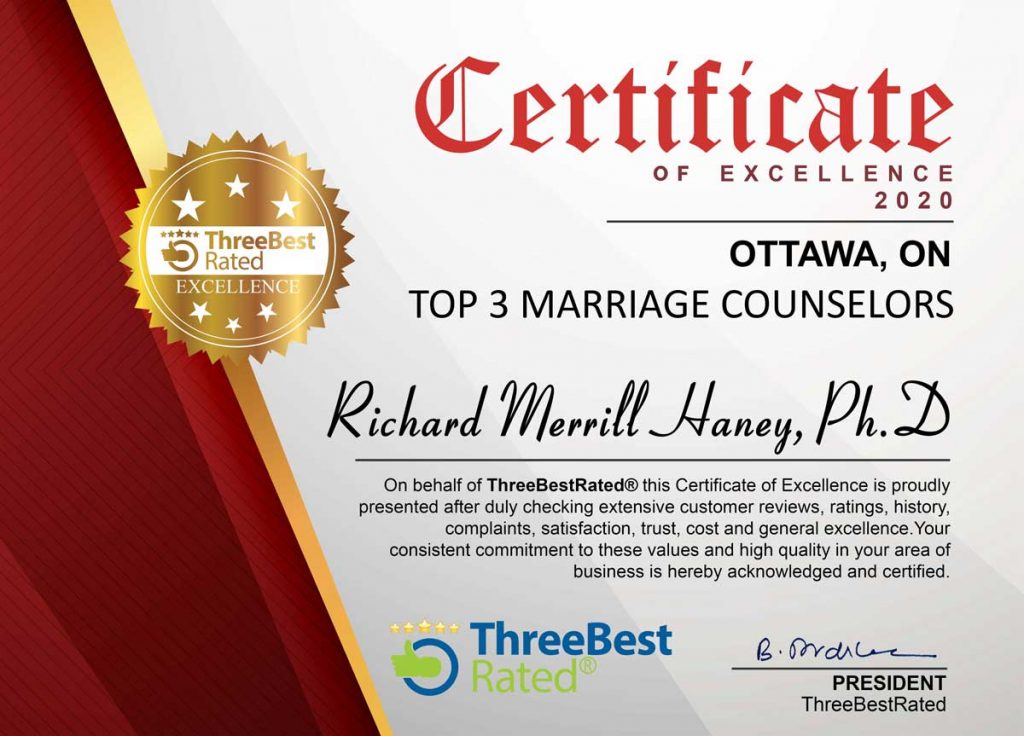Individual Counselling in Ottawa
Counselling is not about “helping”. It is not about giving advice. It is about working with clients to “empower” themselves. A person becomes truly empowered when he or she is in the present tense incorporating and accepting all of their experiences that are unfolding before them. This state is called serendipity and it is characterized by a feeling of wholeness and well – being. The person feels happy just to be in their own skin. Their “wholly longing” dissolves into resolving. Everything seems possible.
In order to experience this state a person must know what they want and know how to get to it. Many people complain that they do not know how to ascertain what it is that they really want. What they want in most cases is, of course, to be in full contact with their truest, deepest self. Accessing this self is something that most people have forgotten how to do since early childhood.
The following is a four step technique which may improve a person’s ability to get emotionally connected with himself or herself:
- Precisely describing the present situation and one’s present sensations.
- Fully experiencing and fully expressing one’s present emotions.
- Assertively questioning the present situation.
- Clearly articulating one’s needs.
In the counselling relationship the counsellor can act as a supporting guide for the clients in their attempts at re – learning how to do this effectively. Each time that clients make choices that are resonant with their true needs their self esteem moves up a few notches. Choice is the building block of self esteem. The more difficult the choice is the larger the jump in self esteem. Failure to reach the goal of the choice does not dampen the increase in self esteem. It is the choice itself that causes the increase in self esteem, not the outcome of the choice.
If a person makes an affirmation about their choice of what they want for example, ” I am person worthy of love.” they will immediately be hit with several “resistances” for example, “You don’t deserve love.”
What is needed then is follow through and courage. Notice that the “cour” in “cour – age” comes from the French word for heart, “coeur”.
One must be “heart – connected” to oneself in order to get in touch with oneself. If the affirmation is repeated over and over again with great courage and self determination the resistances begin to diminish step by step. If you make friends with your fears they become benign.
Certain words used by a person about himself or herself indicate that that person is very far away from his or her true self. Some of these words are: “should “, “but”, “try”, “always” and “never”. “Should” reveals that their inner judge is on the stand and prompting their choices and actions. “But” negates the subject that the person had just mentioned. “Try” implies “to not do”. “Always” is usually impossible. “Never” is rarely the case. If a person notices very carefully when he or she uses these words they will usually notice that a disconnection has taken place between two parts of himself or herself. In counselling, one of the functions of the effective therapist is to gently suggest, in a non – judgemental way, that a client seems to be disconnecting from their own stated perceptions of himself or herself. True honesty commences with self – honesty. Without honesty it is literally impossible to re – connect with oneself.
Perhaps the greatest roadblock to self – honesty and honesty is the emotion of anger. Anger is a basic emotion. Just like air…it is essential for life to exist. It is not an emotion “to get rid of”. Unconscious anger is feared, and even dreaded, by most and with good reason. It usually leads to rejection and violence. However, conscious anger, anger which is channeled and properly monitored, can actually vastly improve most situations. The angry one realizes that they are not “angry at” rather they experience that they are “angry with” conflicts within their own self. He or she owns his or her own anger and thereby learns and grows from that experience. The anger therefore was the early warning signal of the presence of two conflicting parts of the angry one.
C.G. Jung, the great Swiss psychotherapist, condensed his whole life of research and experience with people and patients down to two basic concepts:
- a.) Dis – identify with the persona.
- b.) Assimilate the shadow.
He urged that we avoid getting stuck in our ego, self image, career achievements, fame, etc. He believed that if we lived by these principles that we would be in much closer touch with our true self…sometimes called our mythological “Enfant d’Or”.
He also urged that we do not avoid the darker side of life. Indeed, he asked us to face it, own it and incorporate it into our full and whole experience. It seems that denial of the dark side of life suffocates the brighter side of life. It seems as though we can’t have one without the other. It is a matter of balancing our whole being.


